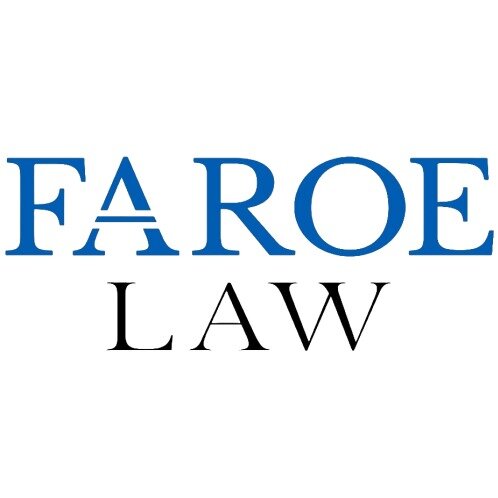Best Energy, Environment & ESG Lawyers in Faroe Islands
Share your needs with us, get contacted by law firms.
Free. Takes 2 min.
Or refine your search by selecting a city:
List of the best lawyers in Faroe Islands
About Energy, Environment & ESG Law in Faroe Islands
Energy, Environment & ESG (Environmental, Social, and Governance) law in the Faroe Islands is a growing and increasingly important field. The Faroe Islands, while part of the Kingdom of Denmark, have home rule and manage their own energy, environmental, and resource policies. The focus in these laws is on balancing sustainable development, the protection of the pristine North Atlantic environment, and supporting responsible economic growth. With global attention on issues like climate change, renewable energy, fisheries sustainability, and corporate responsibility, legal frameworks in the Faroe Islands are continuously evolving to meet international standards and local needs.
Why You May Need a Lawyer
Legal assistance in Energy, Environment & ESG is often essential in the Faroe Islands for various situations:
- Starting or expanding a business that involves fishing, aquaculture, or energy production
- Seeking permits for renewable energy projects, such as wind, hydropower, or geothermal plants
- Addressing environmental compliance for existing operations in industries like shipping, oil exploration, or tourism
- Responding to environmental incidents or disputes, including pollution or resource use conflicts
- Ensuring your business complies with ESG requirements in contracts and financing
- Participating in public consultations or hearings on new legislation or development projects
- Challenging regulatory decisions or environmental impact assessments
- Understanding your rights and obligations under local and international environmental agreements
A qualified lawyer ensures you meet all legal requirements, helps minimize risks, and advocates for your interests.
Local Laws Overview
Several key local laws and regulations shape the Energy, Environment & ESG landscape in the Faroe Islands:
- Energy Regulation: The Faroe Islands aim for energy independence using renewable sources. There are specific regulations for electricity production, grid access, and energy market activities. Renewable energy is promoted through policy incentives and local targets.
- Fishing and Aquaculture Laws: The fisheries sector is heavily regulated to ensure sustainability. There are strict quotas, licensing requirements, and environmental impact rules for harvesting and farming seafood.
- Environmental Protection: Environmental legislation governs waste management, pollution control, conservation areas, and the protection of unique wildlife. Environmental impact assessments are required for projects with significant effects on the land or sea.
- Oil & Gas Exploration: There are specific statutes and licensing processes for offshore oil and gas activities, with requirements aimed at preventing environmental harm and ensuring responsible resource management.
- Corporate ESG Regulations: Companies are increasingly expected to report on environmental and social responsibility, especially when seeking investments or government contracts. EU directives and international standards may also influence local practices.
Frequently Asked Questions
What is ESG and why is it relevant in the Faroe Islands?
ESG stands for Environmental, Social, and Governance. It represents the standards that companies and organizations are expected to follow regarding environmental protection, social responsibility, and ethical management. In the Faroe Islands, ESG is increasingly important for attracting investment, ensuring regulatory compliance, and gaining access to new markets.
Are renewable energy projects supported by the government?
Yes. The Faroese government supports renewable energy development through policies and incentives. There are local targets to increase wind, hydro, and other renewable energy sources, and specific permits are required to launch such projects.
Do I need an environmental permit for a new development?
Most new developments, especially those with potential impact on the environment such as construction, fish farming, or industrial activities, require environmental permits. Environmental impact assessments are often a prerequisite.
How are fisheries regulated in the Faroe Islands?
Fisheries are managed through a system of quotas, licenses, and monitoring to ensure sustainability. There are strict rules on allowable catches, gear, and the licensing of vessels, with penalties for violations.
What laws affect oil and gas exploration?
Oil and gas exploration is governed by specific acts and regulations that require licenses, environmental review processes, and adherence to safety and environmental protection standards. International agreements may also apply.
Are there laws about corporate social responsibility?
Yes. Companies operating in the Faroe Islands are subject to laws and guidelines related to corporate social responsibility, and increasingly must disclose their ESG policies especially when dealing with international partners or public procurement.
What happens if I fail to comply with environmental regulations?
Non-compliance can result in fines, suspension of permits, or even criminal charges depending on the severity and nature of the violation. Remediation and restoration of any environmental harm may also be required.
How can I participate in public consultations on new laws or projects?
Public consultations are often organized by governmental authorities for major projects or legislative changes. You can submit comments, attend hearings, or participate through local associations and NGOs.
Can foreign companies invest in the Faroese energy sector?
Yes, foreign investment is possible but is subject to local regulations, permit requirements, and sometimes restrictions to protect national interests and the environment.
Where can I find a specialist lawyer in this field in the Faroe Islands?
Many law firms in the Faroe Islands have lawyers who specialize in energy, environment, and ESG law. Local bar associations and professional directories are helpful starting points for finding qualified legal professionals.
Additional Resources
Here are some resources, agencies, and organizations useful for further information or assistance:
- Umhvørvisstovan (Environment Agency): The primary authority for environmental regulation, permitting, and enforcement.
- Landsverk (Public Works Authority): Involved in infrastructure and public works including energy-related projects.
- Faroese Ministry of Industry and Trade: Responsible for policy and regulation in energy and resource sectors.
- Faroese Energy Authority: Oversees energy production, market regulations, and renewable energy initiatives.
- Faroese Environmental NGOs: Local non-profits may offer advice and advocacy in environmental and social matters.
- Local Bar Association: A resource for finding qualified lawyers with experience in Energy, Environment & ESG law.
Next Steps
If you need legal guidance in Energy, Environment & ESG in the Faroe Islands, take the following steps:
- Define your issue or project and gather any relevant documents or information
- Check if your concern requires specific permits or compliance with local laws
- Contact a qualified lawyer or law firm specializing in energy, environment, or ESG matters in the Faroe Islands
- Prepare a list of questions and objectives for your legal advice session
- Follow up on any recommendations, including filing applications or participating in consultations
Proper legal support ensures you operate within the law, avoid potential pitfalls, and help contribute to a sustainable future in the Faroe Islands.
Lawzana helps you find the best lawyers and law firms in Faroe Islands through a curated and pre-screened list of qualified legal professionals. Our platform offers rankings and detailed profiles of attorneys and law firms, allowing you to compare based on practice areas, including Energy, Environment & ESG, experience, and client feedback.
Each profile includes a description of the firm's areas of practice, client reviews, team members and partners, year of establishment, spoken languages, office locations, contact information, social media presence, and any published articles or resources. Most firms on our platform speak English and are experienced in both local and international legal matters.
Get a quote from top-rated law firms in Faroe Islands — quickly, securely, and without unnecessary hassle.
Disclaimer:
The information provided on this page is for general informational purposes only and does not constitute legal advice. While we strive to ensure the accuracy and relevance of the content, legal information may change over time, and interpretations of the law can vary. You should always consult with a qualified legal professional for advice specific to your situation.
We disclaim all liability for actions taken or not taken based on the content of this page. If you believe any information is incorrect or outdated, please contact us, and we will review and update it where appropriate.
Browse energy, environment & esg law firms by service in Faroe Islands
Faroe Islands Attorneys in related practice areas.
Browse energy, environment & esg law firms by city in Faroe Islands
Refine your search by selecting a city.













